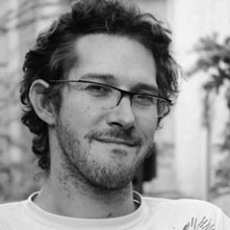South African organisations using open data for change
South African organisations using open data for change
The open data world is awash with fancy new tools that let journalists and activists dive into data in a way that would have been impossible without a degree in statistical computation five years ago. Great, free, open source software like Google Spreadsheets, OpenRefine, Datawrapper and Infogram give us the power to move from collecting data, through to cleaning data, interviewing data, and visualizing data in relatively simple steps.
But other tools are often overlooked in the process, tools that often don’t require a computer. The process of design thinking, of creating a data product that will be useful and used in the real world, are undervalued or forgotten.
Code for South Africa (Code4SA) teamed up with the School of Data (Scoda) and Indigo Trust to host two workshops on open data, one in Johannesburg and one in Cape Town. Run by Code4SA Scoda fellows, Siyabonga Africa and Hannah Williams, the two-day workshops taught not only the technical tools required to create a data story, but also the design thinking behind creating a really useful product.
Assisted by Scoda’s “Data Diva” Michael Bauer from Vienna, Austria, two groups in each city worked through designing products that they could publish that would meet their audience’s needs, while fulfilling the organisation’s goals and still being honest to what the data has to say.
In Johannesburg, The Con Magazine and Media Monitoring Africa joined us in the beautiful space in central Johannesburg, The OPEN, where Africa took them through a design process that included identifying preconceptions, creating personas, and designing a product that people would use.
We also introduced the organisations to numerous software tools that they could use in their daily work, although I admittedly missed the mark with my QGIS and TileMill demo, which had the audience run screaming from the room.
By the end of it, The Con had adapted the methodology to suit their specific ideals and circumstance, and MMA had two projects that went from a rough idea when they walked in to a very definite shape by the end.
We hosted the workshop at Code4SA’s less swanky offices at Codebridge in Cape Town, but at least the coffee was good. Williams hosted the workshop, with Black Sash as one group, and an amalgamation of Ndifuna Ukwazi, International Budget Partnership and the Social Justice Coalition forming a second group, tackling city budget issues.
We spent a little more time working through the tools in Cape Town, using the School of Data’s “data pipeline” concept as a framework. By the end of it, both teams had the beginnings of visualisations, and a much better understanding of their datasets. Scraping (using Tabula) and cleaning (with OpenRefine) became vital for the budget team, while Black Sash effectively used pivot tables and Infogram to understand and then present their data.
Although we targeted news organisations in Johannesburg and non-profits in Cape Town, the enthusiasm for open data and learning was mirrored in both cities. Thanks to Indigo Trust’s generous funding, we now get to keep the momentum going, with the Fellows in each city continuing to work with the organisations for the rest of the year, ensuring that their projects come to life and get used. This is a massive advantage over the traditional workshop - we get to follow up and make sure that our work makes a difference to the organisations we work with. We also get to continue training the organisations; two days is simply not enough time to discover every tool or methodology in the open data world, let alone find what will work for them.
The Con’s approach is particularly interesting - its output will be a handbook on data journalism, which will inform its strategy of its entire publication. In this context, issues like data journalism ethics become much more important.
MMA’s plan is to build two apps. The first will track the effect of Twitter on the general news, by focussing on the newsmakers of the day, and their interaction with journalists, through to the final articles in newspapers and online. They are also doing an app that will address the coverage of children in the media.
Black Sash plans to use data for a variety of projects, particularly their mission to stop illegal garnishing of grants by the morally vacuous companies that prey on the poorest of the poor.
The NU, IBP and SJC team plans to use data from the City of Cape Town’s budget to better understand how the city allocates money, and then get communities interested and involved in the creation of the next budget.
I’d like to personally thank Loren Treisman and Indigo Trust for making this possible; Milena Marin and the School of Data for the exciting Fellowship programme, and for lending us the formidable Michael Bauer; our great fellows, Hannah and Siya; and the attendees, who’s boundless enthusiasm and fast learning really made the workshops as fun for us as it seemed to be for you.
 ##Siyabonga Africa discussing stickies
##Siyabonga Africa discussing stickies
 ##Michael Bauer with The Con crew
##Michael Bauer with The Con crew
 ##Siyabonga’s Design Principles
##Siyabonga’s Design Principles
 ##Hannah Williams working with Paul Berkowitz
##Hannah Williams working with Paul Berkowitz
 ##Media Monitoring Africa giving some thought to its Twitter project
##Media Monitoring Africa giving some thought to its Twitter project
 ##Putting the last touches on the Johannesburg projects on Friday afternoon
##Putting the last touches on the Johannesburg projects on Friday afternoon
 ##Michael Bauer giving a technical demonstration in Cape Town
##Michael Bauer giving a technical demonstration in Cape Town
 ##NU and IBP discuss their product design
##NU and IBP discuss their product design
 ##The Cape Town teams looking industrious
##The Cape Town teams looking industrious

